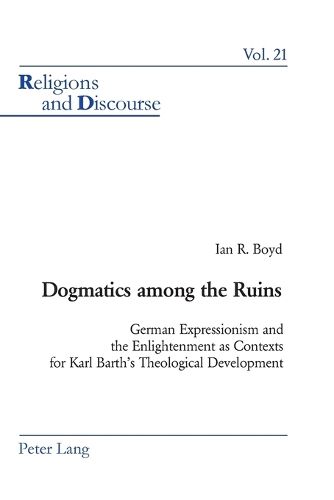Readings Newsletter
Become a Readings Member to make your shopping experience even easier.
Sign in or sign up for free!
You’re not far away from qualifying for FREE standard shipping within Australia
You’ve qualified for FREE standard shipping within Australia
The cart is loading…






This title is printed to order. This book may have been self-published. If so, we cannot guarantee the quality of the content. In the main most books will have gone through the editing process however some may not. We therefore suggest that you be aware of this before ordering this book. If in doubt check either the author or publisher’s details as we are unable to accept any returns unless they are faulty. Please contact us if you have any questions.
In the second decade of the twentieth century the cultural life of Germany was transformed by the emergence of Expressionism, a series of vigorous, youthful artistic movements which were to exert a lasting influence on modern culture. In the same decade a young Swiss pastor called Karl Barth began a theological revolution, laying the foundations for probably the most influential body of Christian theology in the modern age. Some relationship between these two revolutions has long been assumed by scholars; yet it has never been examined in detail. The first part of this study addresses this omission, offering the most detailed analysis to date of the important relationship between Barth and Expressionism. The second part of the book takes a broader look at both Barth’s theology and Expressionist culture, considering the relevance of the Enlightenment as a context for both. The key to this is a detailed discussion of Barth’s own analysis of the Enlightenment in his neglected book Protestant Theology in the Nineteenth Century. Barth’s view is also compared with Alasdair MacIntyre’s treatment of the Enlightenment in After Virtue. The examination of these two contexts, German Expressionism and the Enlightenment, yields valuable insights into Barth’s entire theological project.
$9.00 standard shipping within Australia
FREE standard shipping within Australia for orders over $100.00
Express & International shipping calculated at checkout
This title is printed to order. This book may have been self-published. If so, we cannot guarantee the quality of the content. In the main most books will have gone through the editing process however some may not. We therefore suggest that you be aware of this before ordering this book. If in doubt check either the author or publisher’s details as we are unable to accept any returns unless they are faulty. Please contact us if you have any questions.
In the second decade of the twentieth century the cultural life of Germany was transformed by the emergence of Expressionism, a series of vigorous, youthful artistic movements which were to exert a lasting influence on modern culture. In the same decade a young Swiss pastor called Karl Barth began a theological revolution, laying the foundations for probably the most influential body of Christian theology in the modern age. Some relationship between these two revolutions has long been assumed by scholars; yet it has never been examined in detail. The first part of this study addresses this omission, offering the most detailed analysis to date of the important relationship between Barth and Expressionism. The second part of the book takes a broader look at both Barth’s theology and Expressionist culture, considering the relevance of the Enlightenment as a context for both. The key to this is a detailed discussion of Barth’s own analysis of the Enlightenment in his neglected book Protestant Theology in the Nineteenth Century. Barth’s view is also compared with Alasdair MacIntyre’s treatment of the Enlightenment in After Virtue. The examination of these two contexts, German Expressionism and the Enlightenment, yields valuable insights into Barth’s entire theological project.